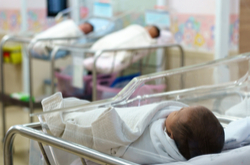Trending Science: World’s first baby born via womb transplant from dead donor
Before uterus transplants became possible, the only options to have a child were adoption or surrogacy. There have been several successful pregnancies using uterus transplants from live donors. The first such case was in Sweden in 2013. After 10 unsuccessful attempts, some experts doubted whether a procedure that uses a dead donor would be possible. A baby girl’s birth in a São Paulo hospital last December marks another milestone in fertility treatment. Womb donations from deceased donors now possible According to a case study just published in the peer-reviewed medical journal ‘The Lancet’(opens in new window), a 32-year-old woman born without a uterus has become the first person to give birth to a live baby thanks to a womb transplanted from a dead donor. The mother used the uterus of a 45-year-old woman who had 3 children. The donor died of a stroke. She granted use of her organs before dying. It took doctors over 10 hours to transfer the donor’s uterus to the recipient. The procedure involved connecting the recipient’s veins and arteries, ligaments and vaginal canals with the donated uterus. Following surgery, the recipient was monitored for 8 days in case she fought off and rejected the transplanted organ. On 15 December 2017, the baby girl was delivered by caesarean section at 35 weeks and 3 days, and weighed 2 550 grams. She was healthy and responsive when she came into this world. The study explains that the uterus showed no signs of rejection 5 months after the transplant. Ultrasound scans were normal and the mother was having regular menstruation. The woman’s previously fertilised and frozen eggs were implanted after 7 months. Ten days later she was confirmed pregnant. There were no major issues during the pregnancy, either. A year later, the Brazilian mother and baby are both healthy. The baby girl was 7 months and 20 days old when the case study was submitted to the journal. She continued to breastfeed and weighed 7.2 kg. Paving the way for women to donate their womb after death The study says that the method is viable and could offer women with uterine infertility access to a larger pool of potential donors. “The numbers of people willing and committed to donate organs upon their own deaths are far larger than those of live donors, offering a much wider potential donor population,” Dani Ejzenberg, a doctor at São Paulo University hospital who led the research, told ‘Reuters’(opens in new window). Quoted in ‘CNN’(opens in new window), he added: “The results provide proof-of-concept for a new treatment option for absolute uterine factor infertility.” Shortly before this holiday season, the infant will be celebrating her first birthday. It will be many years before she understands how momentous this occasion is for medical history, how it will inspire further research to reduce risks and provide hope for families who can’t carry and deliver a child.
Countries
United Kingdom



